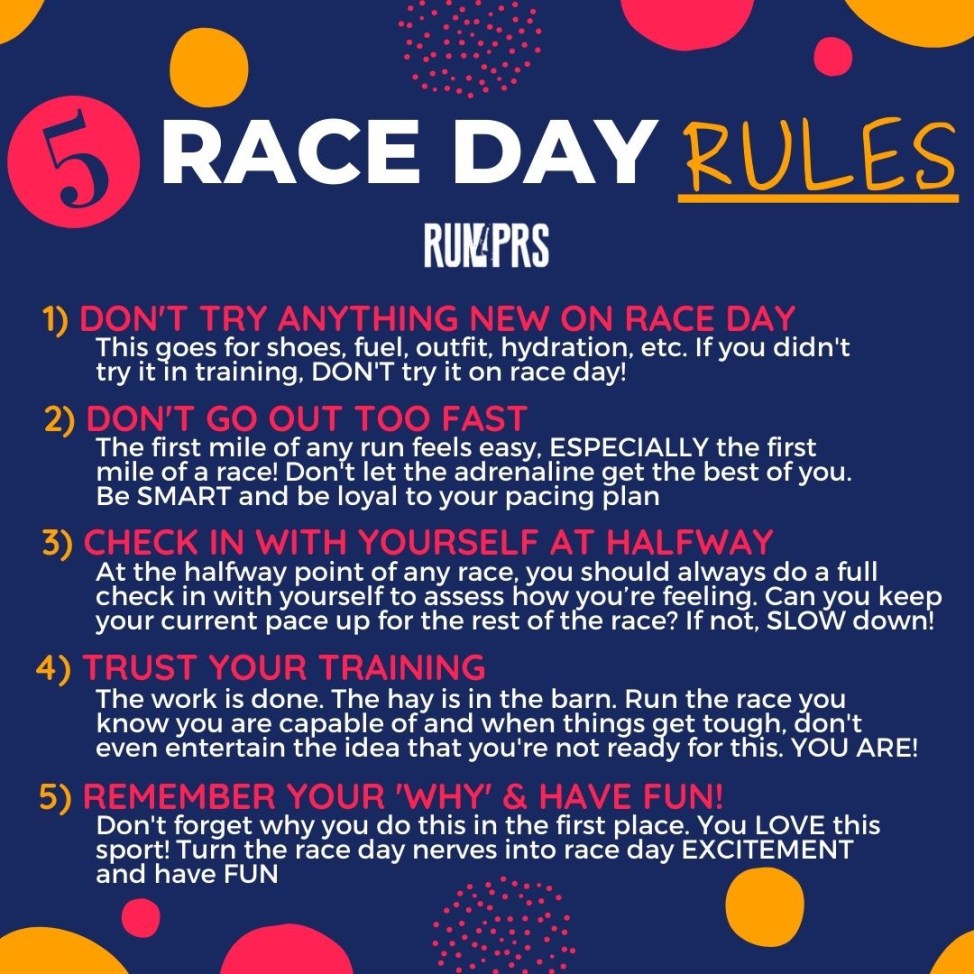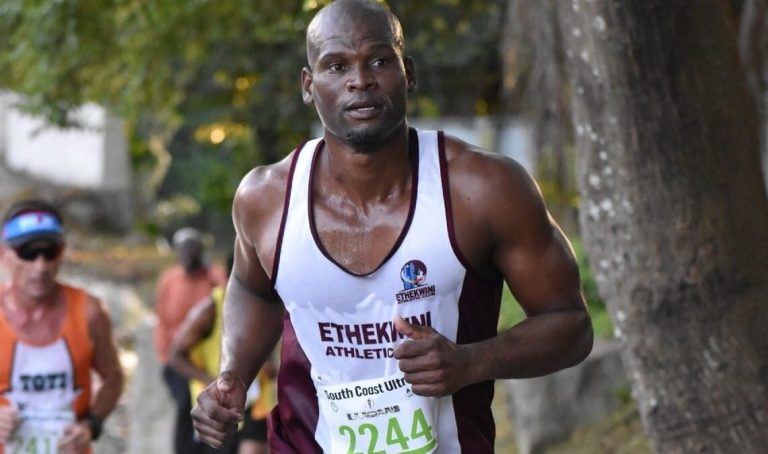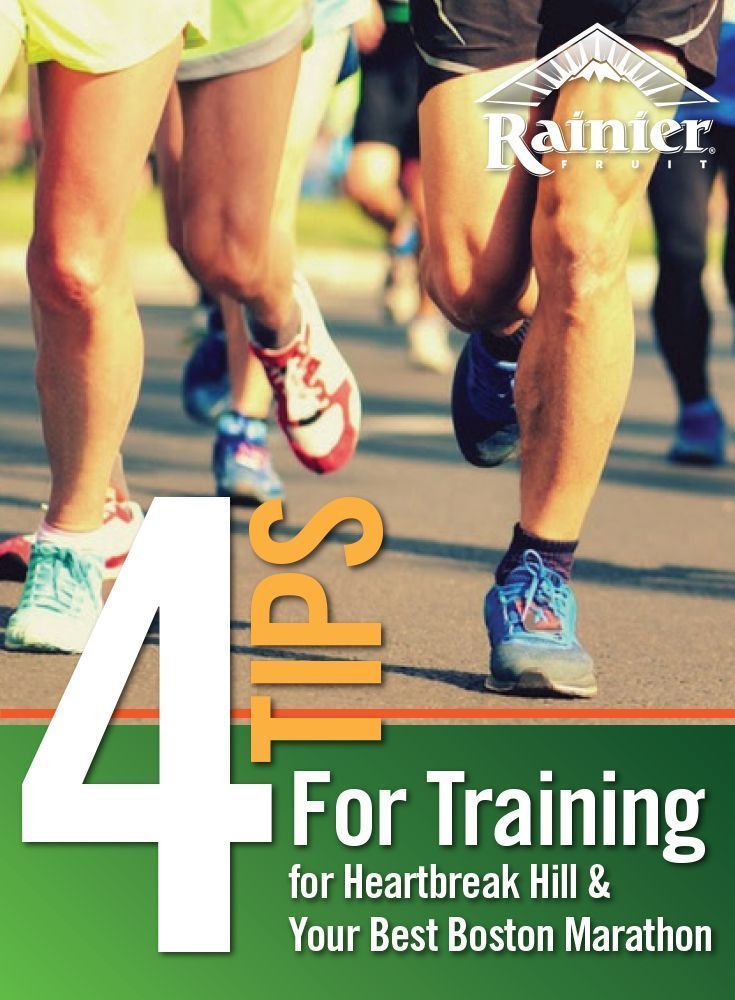Best Ways To Manage Race Day Nerves
To manage race day nerves, focus on deep breathing and positive visualization techniques. Relaxing music can also be helpful.
Race day nerves can be overwhelming for many athletes, causing stress and anxiety that can impact performance. It is crucial to find effective strategies to manage these nerves and stay calm and focused on race day. By incorporating techniques like deep breathing exercises and visualization to mentally prepare for the race, athletes can alleviate anxiety and boost confidence.
Additionally, listening to music that promotes relaxation can help create a positive mindset. We will explore the best ways to manage race day nerves to optimize performance and achieve success on the big day.
Preparation
Races can be nerve-wracking experiences, and it’s completely normal to feel anxious leading up to the big day. The key is to minimize race day nerves by setting yourself up for success through thorough preparation. By taking care of physical and mental preparations, you can approach race day with confidence and a clear mind. Let’s dive into the best ways to manage race day nerves through effective preparation.
Physical Preparation
To perform at your best on race day, physical preparation is crucial. This involves training your body to handle the demands of the race distance and terrain. Incorporate a mix of endurance, strength training, and rest days into your routine to ensure you’re physically ready.
Here are some key physical preparation tips to consider:
- Follow a structured training plan tailored to your race distance.
- Include cross-training activities to build overall fitness and prevent overuse injuries.
- Practice proper nutrition to fuel your body for peak performance.
Mental Preparation
Equally important is mental preparation. Managing race day nerves requires mental strength and a positive mindset. By training your brain to cope with stress and pressure, you can enhance your racing experience and boost confidence.
Consider the following mental preparation strategies:
- Practice visualization techniques to imagine yourself succeeding on race day.
- Utilize positive affirmations to build self-belief and counteract negative thoughts.
- Establish pre-race rituals to create a sense of familiarity and calm before the event.
Establish A Routine
Establishing a routine can help calm race day nerves and set you up for success.
Stick To A Consistent Schedule
Create a daily schedule and stick to it to build familiarity and reduce anxiety.
Create A Pre-race Routine
- Prepare your gear the night before.
- Eat a familiar breakfast to fuel your body.
- Arrive at the race venue early to avoid last-minute rush.
Visualization Techniques
Visualization Techniques: Harnessing the power of visualization can significantly help in managing race day nerves. Here are some effective visualization techniques to help you stay focused and calm on the big day:
Create A Mental Image Of Success
Imagine yourself crossing the finish line with a big smile on your face and the cheering crowd around you. Visualize every detail of the race, from the starting line to the final stretch, feeling confident and strong throughout.
Practice Positive Self-talk
Repeat encouraging phrases to yourself such as, “I am prepared”, “I am strong”, and “I can do this”. Focus on positive affirmations that boost your confidence and motivate you to perform at your best.

Credit: www.listennotes.com
Breathing And Relaxation Exercises
Breathing and relaxation exercises are effective tools for managing race day nerves. Utilizing specific breathing techniques and muscle relaxation methods can help athletes calm their minds and bodies, ensuring peak performance on the big day. By incorporating these exercises into their pre-race routine, athletes can alleviate anxiety and stress, allowing them to focus on their performance and achieve optimal results.
Deep Breathing Exercises
Deep breathing exercises involve taking slow, deep breaths to reduce stress and promote relaxation. Athletes can perform deep breathing by inhaling deeply through their nose, holding the breath for several seconds, and then exhaling slowly through their mouth. This practice can help to slow the heart rate, lower blood pressure, and calm the nervous system, preparing the body for the physical and mental demands of race day.
Progressive Muscle Relaxation
Progressive muscle relaxation is a technique that involves tensing and then relaxing specific muscle groups to release physical tension and promote overall relaxation. Athletes can systematically tense and release each muscle group, starting from their toes and working their way up to their head. This method helps to increase body awareness, reduce muscle tension, and alleviate any physical stress or discomfort, allowing athletes to feel more at ease and prepared for their race.
Developing A Support System
Prepare for race day nerves by developing a solid support system that includes friends, family, and fellow athletes who can provide encouragement and motivation. Having a strong network of support can help manage anxiety and boost confidence throughout the race.
Developing a Support System When it comes to managing race day nerves, having a strong support system in place can make all the difference. Surrounding yourself with like-minded individuals who understand your goals and can offer encouragement and guidance can help alleviate anxiety and boost your confidence. In this article, we will explore two key ways to develop a support system for race day: finding a running partner or group, and seeking guidance from a coach or mentor. 1. Find a Running Partner or Group Running with a partner or joining a running group can offer a sense of camaraderie and motivation that is hard to find elsewhere. Whether you prefer solo runs or enjoy the company of others, having someone to share your training experiences with can be invaluable. Plus, running with someone else can push you to go further and faster, helping you achieve your race day goals. If you’re unsure of where to find a running partner or group, start by asking friends who are already involved in the running community or check out local running clubs in your area. Online communities and social media groups dedicated to running are also great places to connect with fellow runners. 2. Seek Guidance from a Coach or Mentor A coach or mentor can offer valuable insights and expertise to help you navigate the challenges of race day. They can provide personalized training programs, offer advice on proper technique and pacing, and help you set realistic goals. Having someone to hold you accountable and provide feedback can greatly enhance your training experience. When seeking a coach or mentor, look for someone with experience and knowledge in the specific type of race you are preparing for. They should be someone you feel comfortable communicating with and who understands your individual needs and limitations. Many running clubs or fitness centers offer coaching services, or you can reach out to experienced runners in your community for recommendations. In conclusion, developing a support system is crucial in managing race day nerves. Finding a running partner or group and seeking guidance from a coach or mentor can provide the motivation, accountability, and expertise you need to succeed. Surrounding yourself with individuals who share your passion for running will not only help calm your nerves but also create a sense of community and enjoyment around your race day experience. So, don’t hesitate to reach out and build your support system today. Happy running!
Credit: vert.run

Credit: www.recres.org
Frequently Asked Questions Of Best Ways To Manage Race Day Nerves
How Can I Calm My Nerves On Race Day?
To calm your nerves on race day, try deep breathing exercises, visualize success, and focus on positive affirmations.
What Should I Eat Before A Race To Reduce Nervousness?
To reduce nervousness before a race, eat a balanced meal with carbohydrates for energy, protein for muscle repair, and avoid heavy or greasy foods.
How Can I Mentally Prepare For A Race?
Mentally prepare for a race by setting realistic goals, creating a race strategy, and visualizing yourself crossing the finish line with confidence.
Conclusion
In sum, managing race day nerves is crucial for peak performance. Incorporating mental preparation, physical warm-ups, and positive affirmations can help alleviate anxiety. It’s essential to find what works best for you and practice these strategies leading up to race day.
Ultimately, a confident and composed mindset is key to success.







